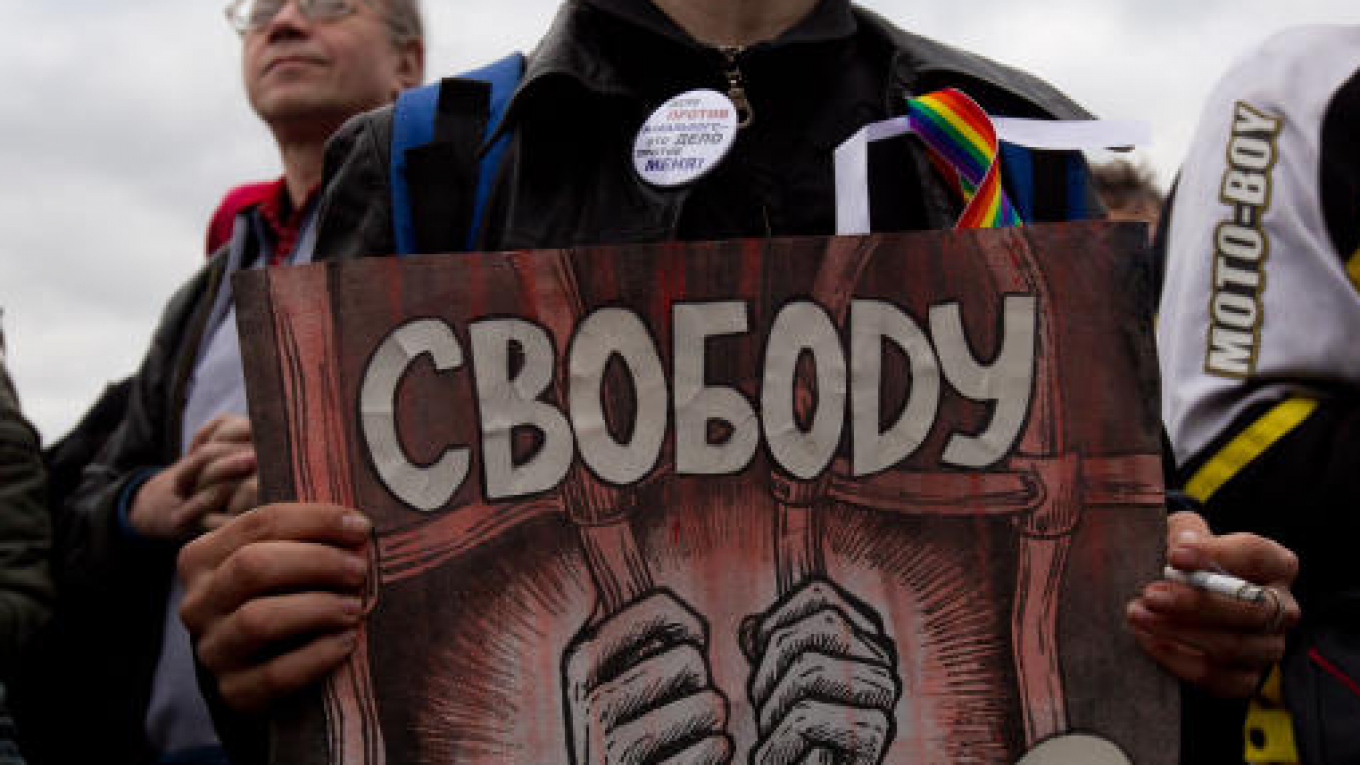Human rights watchdog Amnesty International has named the majority of the defendants in the ongoing Bolotnaya trial "prisoners of conscience," a title that the protesters themselves will reject unless it is applied to all of the Bolotnaya defendants equally, a news report said Tuesday.
Although the defendants may have broken the law by resisting law enforcement, their actions were dictated by the desire to protect other protesters and must be considered in the context of the police officers' excessive use of force, a statement from Amnesty said.
"The key point when conferring this status is precisely the nonviolent nature of the protest," the head of Amnesty's Russian branch Sergei Nikitin told Kommersant.
The defendants stand accused of rioting and attacking police officers during an opposition protest at Bolotnaya Ploshchad on May 6, 2012, in a case that has drawn criticism from human rights groups and inspired numerous protests and fundraising efforts by the political opposition.
Seven of the trial's 12 defendants were declared "prisoners of conscience" in Amnesty's latest resolution, joining three protesters who received the title in October.
Many of the defendants have demanded that Andrei Barabanov, arrested on suspicion of kicking a fallen member of the riot police, receive the designation as well, said defendant Maria Baronova, who is standing trial but is not being kept in custody.
Denis Lutskevich and Alexei Polikhovich said that they would personally refuse the title until it was extended to Barabanov and all other defendants.
"We don't need it, it is simply ugly and cynical," Polikhovich said.
Regardless of whether Amnesty will extend the title to all of the defendants, it is unlikely to influence the court's ruling in the Bolotnaya case, said Alexei Makarkin, deputy head of the Center for Political Technologies.
"It's a completely formal thing which is used solely for attracting international attention and affecting the authorities of this or that country. In Russia they have always considered such declarations by Amnesty International to be interference in the internal affairs of the country and have tried to ignore them," Makarkin said.
A Message from The Moscow Times:
Dear readers,
We are facing unprecedented challenges. Russia's Prosecutor General's Office has designated The Moscow Times as an "undesirable" organization, criminalizing our work and putting our staff at risk of prosecution. This follows our earlier unjust labeling as a "foreign agent."
These actions are direct attempts to silence independent journalism in Russia. The authorities claim our work "discredits the decisions of the Russian leadership." We see things differently: we strive to provide accurate, unbiased reporting on Russia.
We, the journalists of The Moscow Times, refuse to be silenced. But to continue our work, we need your help.
Your support, no matter how small, makes a world of difference. If you can, please support us monthly starting from just $2. It's quick to set up, and every contribution makes a significant impact.
By supporting The Moscow Times, you're defending open, independent journalism in the face of repression. Thank you for standing with us.
Remind me later.






